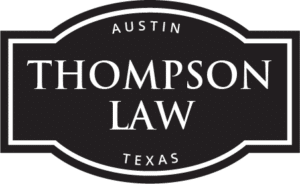Do you think your spouse has been hiding money, spending money on others, or spending money in an intentionally unreasonable way during the marriage? Have you started divorce proceedings but now you are noticing a depletion of the community funds, none of which you authorized? Thompson Law helps clients recover funds in situations like these ones, and we’re here to help you too.
During a divorce, parties may make financial transactions for their own benefit (and to harm the other spouse). These transactions can include paying off their own separate debts, transferring money to a relative, or spending community funds on a girlfriend or boyfriend, among other things. While the situation may seem bleak, Texas law provides a mechanism to correct or account for a depletion of the community estate because of the wrongful acts of the other spouse. We help clients get back the money that is rightfully theirs.
What Kind Of Fraud Is There?
There are two types of fraud on the marital estate under Texas law, actual fraud and constructive fraud:
Actual Fraud
Actual fraud is when a spouse improperly spends or transfers community property OR spends community resources to deprive the other spouse of the use and enjoyment of those assets. Additionally, actual fraud requires that the offending spouse was dishonest, had ill motives, or intended to deceive the other spouse.
Constructive Fraud
Constructive Fraud is when a spouse makes gifts, transfers, or expenditures of community property (also known as the marital estate) to another person (i.e., a third party). The primary difference between actual fraud and constructive fraud is intent. While actual fraud requires bad intent, constructive fraud does not necessarily.
In cases involving constructive fraud, a transfer of community property can be unreasonably excessive, inconsistent with the other spouse’s desires, or unfair in some way that’s specific to those parties. This also includes the actions of one spouse that unfairly disposes of the other spouse’s interest in the community property, as well as unfairly incurring community debt without the other spouse’s knowledge or consent
How Will A Court Assess These Claims When Determining And Deciding The Fairness Of These Transfers?
Here are the factors the court will take into consideration:
- What is the relationship between the spouse making the gift, transfer, or expenditure and the person receiving it?
- Are there any special circumstances that could justify the gift, transfer, or expenditure?
- Were community funds used for the gift, transfer, or expenditure reasonable in proportion to the overall size of the community estate?
What Is A Fiduciary Duty, And What Constitutes A Breach Of That Duty To A Spouse?
When one spouse commits fraud against the other spouse, that spouse is breaching their “fiduciary duty to the other spouse. A fiduciary duty is the responsibility to place someone’s interest ahead of your own when the two interests conflict.
When two people are married, they have a fiduciary relationship with each other. Therefore, spouses must protect their assets as part of the marriage and cannot act without their spouses’ consent. Under Texas law, a breach of that fiduciary duty occurs when one spouse exercises the power of their special community property or over the community estate in an excessive or unreasonable manner. A spouse has a right to dispose of community property but only if reasonable and in the absence of fraud.
How Does the Law Address Fraud? The “Reconstituted Estate”
The “reconstituted estate” is the hypothetical value of a community estate if the fraud had not occurred. In other words, what would have been the value of the community estate if the one spouse had not committed fraud against the other spouse? That amount is the reconstituted community estate.
When a court determines that community funds have been spent, assets have been transferred, or debts have been incurred in a fraudulent manner. In those cases, the court will attempt to reverse damage caused by the offending spouse. If the Court determines that a spouse has committed actual or constructive fraud on the community estate, the court must:
- Calculate the value by which the community estate was depleted as a result of the fraud and calculate the amount of the reconstituted estate; and
- Divide the value of the reconstituted estate between the parties in a manner the court deems just and right.
Fraud and Spousal Maintenance
Under the Texas Family Code, fraud can be a factor that the trial court considers in determining the amount and duration of post-divorce spousal maintenance. If the court determines that a spouse is eligible for spousal maintenance, the code specifically states that the court will consider all relevant factors, including acts by either spouse resulting in excessive or abnormal expenditures, destruction, concealment, or fraudulent disposition of community property.
Contact Thompson Law To Fight Against Fraud On The Community Estate
If you suspect that your spouse has committed fraud, call us. We help clients protect themselves and their assets. Texas divorce laws offer support for fraud in a divorce. Let our experienced team fight for your rights and defend your assets against fraud on the community estate. At Thompson Law, we understand the uniqueness of every individual case. Our legal team goes above and beyond to ensure that you are looked after every step of the way, taking the time to understand your story and building a strategy that provides effective solutions. Call us today to get started.

